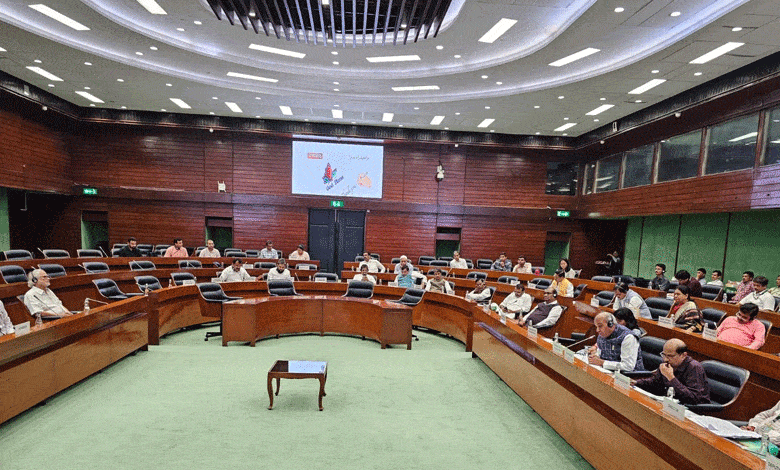JPC Report on Waqf Amendment Bill to be Tabled in Lok Sabha Today
The Joint Parliamentary Committee (JPC) report on the Waqf Amendment Bill is set to be tabled in the Lok Sabha today, highlighting key recommendations and potential changes to Waqf property regulations. Stay updated on the latest developments.

New Delhi: The much-anticipated report of the Joint Parliamentary Committee (JPC) on the Waqf (Amendment) Bill is set to be tabled in the Lok Sabha on Monday.
The report, submitted to Lok Sabha Speaker Om Birla on Thursday, aims to bring substantial changes to the existing Waqf Act of 1995, which governs the management of Waqf properties in India.
Table of Contents
Key Highlights of the JPC Report on the Waqf (Amendment) Bill
- JPC Report Submission: Committee Chairman Jagdambika Pal and member Sanjay Jaiswal will present the report in the Lok Sabha.
- Amendments Proposed: The committee approved 14 amendments proposed by the ruling BJP-led National Democratic Alliance (NDA).
- Opposition’s Stand: Opposition parties claim the amendments infringe on the rights of the Muslim community and undermine the federal structure.
- Voting Outcome: 16 members supported the amendments, while 10 opposed them.
- Controversy: The Opposition alleges that their proposed amendments were entirely rejected, sparking debate.
What is the Waqf (Amendment) Bill?
The Waqf (Amendment) Bill is a proposed revision of the Waqf Act of 1995, which was initially introduced to oversee and regulate Waqf properties across India. The Bill aims to streamline the governance of Waqf assets, which are religious endowments used for charitable and religious purposes by the Muslim community.
However, the Bill has become a point of contention, with opposition parties arguing that the amendments serve to diminish the autonomy of Waqf boards and grant excessive control to the central government.
Details of the JPC’s Amendments
According to JPC Chairperson Jagdambika Pal, the committee reviewed 44 proposed amendments, discussing them in detail over six months. The final meeting saw 14 amendments approved through a majority vote, while all proposals from the Opposition were rejected.
Pal stated, “A total of 44 amendments were discussed clause by clause. After six months of deliberations, amendments were sought from all members. Out of these, 14 amendments have been accepted based on majority vote. The Opposition’s amendments were all defeated, with 10 members in support and 16 against.”
The approved amendments were primarily those suggested by members of the NDA, further fueling concerns among opposition leaders.
Opposition’s Response and Concerns
Opposition parties have strongly criticized the government’s handling of the Bill, asserting that it represents an effort to dilute the powers of Waqf boards and exert greater control over their administration.
Congress MP Pramod Tiwari voiced concerns about the alleged one-sided nature of the amendments, stating:
“Even before the Waqf Bill is presented, there is uproar. Out of 44 proposed amendments, not a single one from the Opposition was accepted.”
He further questioned the necessity of forming a Joint Parliamentary Committee if the ruling party intended to dismiss all suggestions from the Opposition.
“What was the point of forming the JPC if they refused to consider even one of our suggestions? They have rejected all Opposition amendments while accepting those of the ruling party.”
Opposition leaders have vowed to scrutinize the Bill closely when it is presented in Parliament and have hinted at intensified protests and debates in the coming days.
What Happens Next?
With the JPC report being tabled today, the next steps will involve further deliberations and potential debates in the Lok Sabha. The ruling party is likely to push for the Bill’s swift passage, while the Opposition will attempt to rally support against the amendments.
The coming days are expected to witness heated discussions, both inside and outside Parliament, as stakeholders from various communities and political parties weigh in on the implications of the proposed changes.
